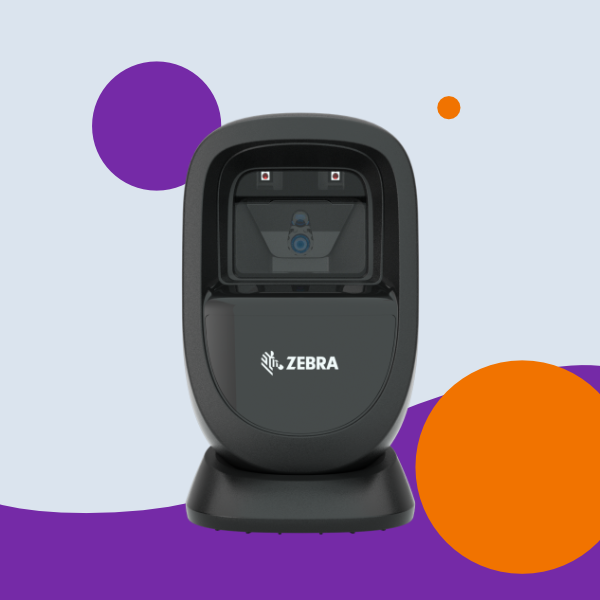Portable Barcodes Scanners for Quick Solutions
Portable Barcodes Scanners for Quick Solutions
Blog Article
Selecting the Right Barcode Scanner for Your Service Needs
Selecting the suitable barcode scanner for your service requires a nuanced understanding of your specific functional requirements and ecological problems. Variables such as scanner kind, rate, and compatibility with existing systems play an essential role in figuring out the ideal choice.
Understanding Barcode Scanner Kind
When it pertains to picking a barcode scanner, recognizing the various types offered is important for meeting certain service needs. Barcode scanners can be classified right into several kinds, each created for various applications and settings.
Fixed-mount scanners, on the other hand, are created for high-volume scanning applications, often discovered in assembly lines or checkout counters. These scanners are placed in a fixed placement, permitting for rapid scanning of multiple items in succession.
Another type is the mobile computer, which incorporates scanning abilities with computing power. These tools are ideal for area operations or storehouse administration, making it possible for information collection and real-time stock tracking. Furthermore, there are commercial scanners that are developed to stand up to extreme atmospheres, such as extreme temperature levels or exposure to dirt and moisture.

Key Functions to Consider
What necessary features should companies prioritize when selecting a barcode scanner? Scanning rate is critical, as faster scanners improve functional effectiveness, especially in high-volume atmospheres. The scanner's capacity to review various barcode formats is also important; guarantee it sustains popular kinds like QR codes, UPC, and Code 128 to suit varied inventory items.
Resilience is an additional vital attribute, specifically for companies in rugged settings. Try to find models that are built to hold up against drops, dirt, and moisture. Additionally, consider the connection options offered; whether you prefer USB, Bluetooth, or Wi-Fi, the best connection can enhance integration with existing systems.

Assessing Your Service Environment
To properly choose a barcode scanner, services must analyze their specific operational atmosphere. This assessment includes examining the physical layout of the work area, the nature of the items being scanned, and the common problems under which scanning takes place. For example, a retail atmosphere might require handheld scanners that can promptly refine transactions at their website the checkout, while a storehouse setup might benefit from ruggedized scanners created to withstand harsher conditions.
In addition, take into consideration the volume of scanning needed. High-throughput atmospheres might require advanced scanning technologies, such as fixed-position scanners or mobile tools that can operate efficiently in fast-paced situations. The integration capabilities with existing inventory management systems additionally play an essential role; guarantee the chosen scanner can perfectly get in touch with software application platforms being used.
Moreover, examine the possibility for development and scalability. A scanner that fulfills current demands could not suffice as organization expands. By extensively examining these aspects, services can choose a barcode scanner that not only fulfills prompt requirements however also sustains lasting operational efficiency and adaptability. This critical strategy eventually adds to smoother procedures Our site and boosted efficiency.
Budgeting for Your Scanner
Having actually examined the operational setting and identified the details requirements for a barcode scanner, the following step involves mindful budgeting to guarantee a clever monetary investment. Developing a budget plan starts with identifying the total expenses connected with the scanner, including initial purchase rate, operational costs, and potential maintenance costs.
When selecting a barcode scanner, take into consideration the series of offered alternatives, from handheld gadgets to fixed-position scanners, as rates can differ dramatically. It is necessary to stabilize cost with performance; deciding for an extra budget friendly model may bring about increased operational inadequacies if it does not fulfill your business requirements.
Along with the hardware, consider prices associated with software, training, and potential upgrades. While it could be appealing to decrease upfront expenditure, purchasing a high quality why not try here scanner that straightens with your functional needs can generate long-term savings with boosted performance and minimized downtime.
Last but not least, think about the total price of possession, which incorporates the scanner's life-span and possible resale value. By diligently intending your budget plan, you can ensure that your investment in a barcode scanner will certainly boost your functional efficiency and monetary efficiency.
Assimilation With Existing Systems
Integrating a barcode scanner with your existing systems is important for maximizing its effectiveness and making sure smooth procedures. barcodes scanners. A well-integrated scanner boosts process efficiency, minimizes errors, and speeds up information processing. When choosing a barcode scanner, think about compatibility with your existing software program and equipment facilities, including your inventory administration systems, point-of-sale (POS) systems, and enterprise resource planning (ERP) remedies
Assess whether the scanner makes use of typical procedures such as USB, Bluetooth, or Wi-Fi, which can help with very easy assimilation. In addition, analyze whether the scanner's software application offers APIs or SDKs that permit for personalization and assimilation with proprietary systems. This is particularly vital for services with unique operational needs.
In addition, consider the scalability of the scanning remedy. As your organization expands, your systems must be able to suit added scanners and handle raised information quantities without significant reconfiguration. Inevitably, buying a barcode scanner that perfectly integrates with your existing systems will yield lasting benefits, enhancing precision, effectiveness, and overall productivity within your procedures. Make the effort to thoroughly analyze your integration needs before making a purchase choice.

Conclusion
In final thought, selecting a suitable barcode scanner necessitates a thorough evaluation of different variables, consisting of scanner types, important attributes, and the details organization setting. Appropriate budgeting for both acquisition and functional expenses is crucial, alongside making sure compatibility with existing systems. By carefully considering these components, companies can boost efficiency and performance, inevitably leading to enhanced operational end results. The right barcode scanner acts as a vital device in enhancing processes and assisting in effective stock administration.
Report this page